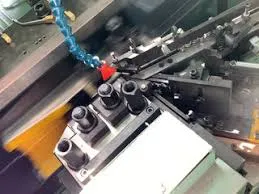
-
 Afrikaans
Afrikaans -
 Albanian
Albanian -
 Amharic
Amharic -
 Arabic
Arabic -
 Armenian
Armenian -
 Azerbaijani
Azerbaijani -
 Basque
Basque -
 Belarusian
Belarusian -
 Bengali
Bengali -
 Bosnian
Bosnian -
 Bulgarian
Bulgarian -
 Catalan
Catalan -
 Cebuano
Cebuano -
 Corsican
Corsican -
 Croatian
Croatian -
 Czech
Czech -
 Danish
Danish -
 Dutch
Dutch -
 English
English -
 Esperanto
Esperanto -
 Estonian
Estonian -
 Finnish
Finnish -
 French
French -
 Frisian
Frisian -
 Galician
Galician -
 Georgian
Georgian -
 German
German -
 Greek
Greek -
 Gujarati
Gujarati -
 Haitian Creole
Haitian Creole -
 hausa
hausa -
 hawaiian
hawaiian -
 Hebrew
Hebrew -
 Hindi
Hindi -
 Miao
Miao -
 Hungarian
Hungarian -
 Icelandic
Icelandic -
 igbo
igbo -
 Indonesian
Indonesian -
 irish
irish -
 Italian
Italian -
 Japanese
Japanese -
 Javanese
Javanese -
 Kannada
Kannada -
 kazakh
kazakh -
 Khmer
Khmer -
 Rwandese
Rwandese -
 Korean
Korean -
 Kurdish
Kurdish -
 Kyrgyz
Kyrgyz -
 Lao
Lao -
 Latin
Latin -
 Latvian
Latvian -
 Lithuanian
Lithuanian -
 Luxembourgish
Luxembourgish -
 Macedonian
Macedonian -
 Malgashi
Malgashi -
 Malay
Malay -
 Malayalam
Malayalam -
 Maltese
Maltese -
 Maori
Maori -
 Marathi
Marathi -
 Mongolian
Mongolian -
 Myanmar
Myanmar -
 Nepali
Nepali -
 Norwegian
Norwegian -
 Norwegian
Norwegian -
 Occitan
Occitan -
 Pashto
Pashto -
 Persian
Persian -
 Polish
Polish -
 Portuguese
Portuguese -
 Punjabi
Punjabi -
 Romanian
Romanian -
 Russian
Russian -
 Samoan
Samoan -
 Scottish Gaelic
Scottish Gaelic -
 Serbian
Serbian -
 Sesotho
Sesotho -
 Shona
Shona -
 Sindhi
Sindhi -
 Sinhala
Sinhala -
 Slovak
Slovak -
 Slovenian
Slovenian -
 Somali
Somali -
 Spanish
Spanish -
 Sundanese
Sundanese -
 Swahili
Swahili -
 Swedish
Swedish -
 Tagalog
Tagalog -
 Tajik
Tajik -
 Tamil
Tamil -
 Tatar
Tatar -
 Telugu
Telugu -
 Thai
Thai -
 Turkish
Turkish -
 Turkmen
Turkmen -
 Ukrainian
Ukrainian -
 Urdu
Urdu -
 Uighur
Uighur -
 Uzbek
Uzbek -
 Vietnamese
Vietnamese -
 Welsh
Welsh -
 Bantu
Bantu -
 Yiddish
Yiddish -
 Yoruba
Yoruba -
 Zulu
Zulu
Overview of Thread Rolling Machinery and Equipment Options
Exploring Thread Rolling Equipment Products A Comprehensive Guide
Thread rolling is a highly efficient manufacturing process used to create threads on cylindrical materials. This technique improves product performance, enhances mechanical properties, and increases the production speed of threaded components. In industries ranging from automotive to aerospace, thread rolling equipment plays an essential role in ensuring the quality and precision of fasteners and other threaded parts. This article delves into various thread rolling equipment products, their advantages, and their applications in modern manufacturing.
What is Thread Rolling?
Thread rolling involves the continuous deformation of material to form threads, typically on cylindrical parts, like bolts, screws, and pins. The process uses hardened steel dies to force the material into the desired thread shape. Unlike cutting processes, thread rolling does not remove material; instead, it shapes the material, resulting in better mechanical properties due to work hardening and a smoother surface finish.
Types of Thread Rolling Equipment
1. Flat Die Thread Rollers These machines utilize two flat dies that compress the material to form threads. Suitable for smaller production runs and various thread profiles, flat die rollers are often ideal for short-length applications.
2. Thread Rolling Machines Fully automated thread rolling machines are designed for high-volume production. They offer precise control over thread specifications and can accommodate a range of materials and sizes. These machines often come with features like adjustable roll positions and programmable controls for additional flexibility.
3. Multi-Station Thread Rollers For high production rates, multi-station rollers can form several threads on different workpieces simultaneously. This equipment is particularly beneficial for manufacturing large batches of similar parts, significantly enhancing throughput.
4. Vertical vs. Horizontal Thread Rollers Vertical thread rolling machines are compact and provide excellent visibility for the operator, making them suitable for small workshops. In contrast, horizontal thread rollers are designed to handle larger components and are more efficient for heavy-duty applications.
5. Handheld Thread Rollers For small-scale operations or fieldwork, handheld thread rollers are available. These tools are lightweight and portable, allowing users to achieve threading in tight spaces without heavy machinery.
thread rolling equipment products

Advantages of Thread Rolling Equipment
1. Cost-Effectiveness Thread rolling operations are generally quicker and more efficient than traditional cutting methods. By minimizing material waste and reducing cycle time, manufacturers can achieve cost savings in their production processes.
2. Improved Mechanical Properties The cold working involved in thread rolling enhances the strength and fatigue resistance of the threaded components. This results in parts that are not only more durable but also capable of withstanding higher loads.
3. Higher Precision Thread rolling machines can produce consistent and precise thread profiles, which is crucial in applications where tolerances are tight.
4. Versatility Modern thread rolling equipment can work with various materials, including metals like steel, aluminum, and brass, and can produce multiple types of threads.
5. Sustainability Since thread rolling does not involve cutting away material, it supports sustainability efforts by reducing scrap and waste, making it a greener manufacturing choice.
Applications in Various Industries
Thread rolling equipment is widely used across multiple sectors. For example, in the automotive industry, it is essential for creating components such as bolts and nuts that require high strength and reliability. In the aerospace sector, thread rolling ensures precise and durable threads for critical components in aircraft manufacturing. Additionally, industries such as construction, appliances, and electronics also rely on thread rolling for a variety of fasteners and connectors.
Conclusion
In conclusion, thread rolling equipment products are crucial for modern manufacturing, offering efficiency, durability, and precision in producing threaded components. As industries continue to seek more sustainable and cost-efficient production methods, the role of thread rolling machinery will likely grow. Businesses investing in this technology can expect to enhance their operational capabilities while maintaining high standards of quality in their products. The innovation in thread rolling equipment promises to play a significant part in the future of manufacturing, driving advancements and efficiencies across various sectors.
